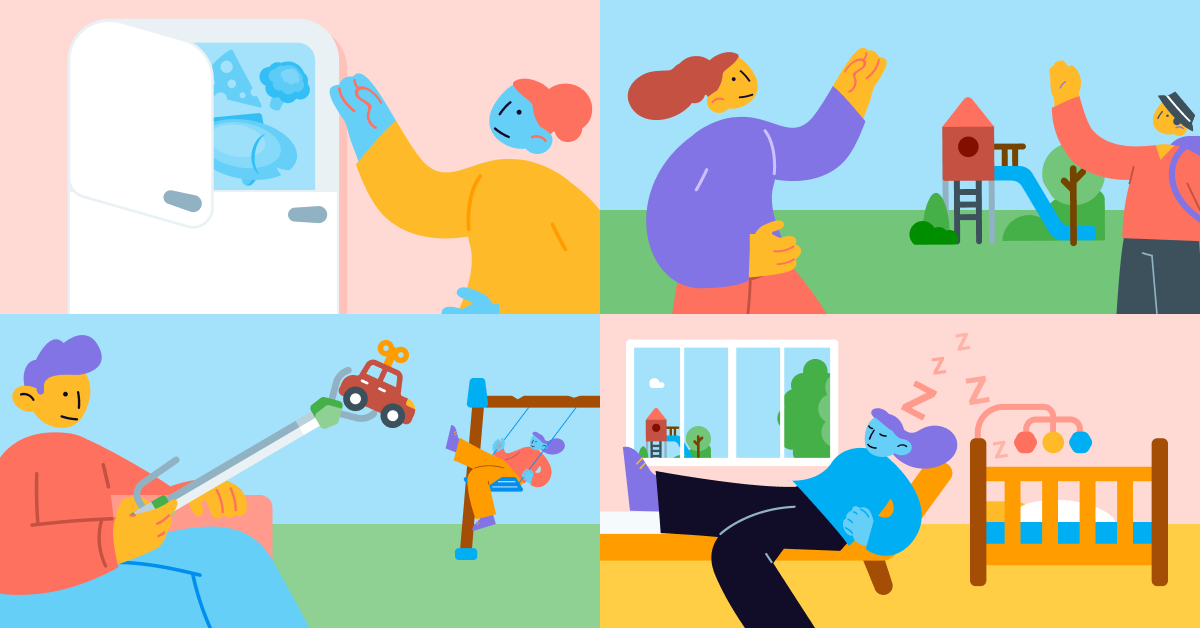Practical tips for you as a parent
Do you sometimes find it difficult to button your child’s clothes? Does it feel tricky to lift your child, or to hold the hand? Little things that others may not even think about, can get problematic with joints that don't want to cooperate.
We have collected practical tips that can help make everyday life easier for you who have both a rheumatic diagnosis and children to take care of.
Stay one step ahead
Plan for worse days during periods when you feel better! Make sure to have ready-made food in the freezer so that you can just heat it up when a bad day suddenly appears.
If you have younger children who need to be entertained, have toys tucked away to pull out when needed. (1) They can feel new if they haven't been around for a while!
When you plan to do something special, also make a plan B—and maybe C—in case the original plan doesn't work.
Get to know other parents in the same position
Having contact with other parents who have similar diagnoses can be valuable. You can advise each other on solutions in everyday life, and help relieve each other as needed.
The understanding often becomes even greater when you experience the same difficulties. In addition, the very knowledge and feeling of not being alone can mean a lot.
Use smart grips and tools
Research what helpful tools that are available and can help you with things that you find tricky. It can, for example, be a grabber to pick things up from the floor.
Use clothes that are relatively easy to put on and take off—avoid difficult buttons and the like.
Try to lift your child using your arms and not just the hands (2), and find alternatives to holding the hand. With a younger child, maybe you can keep your hand on the child's shoulder, and with an older one, walk arm in arm?
An alternative to playing on the floor can be playing in bed. (3) Use a tray as an underlay if you want to draw, do puzzles or the like.
Let your child help you
There are many practical little things that children can help with from a fairly early age. Even a small child can be helpful in fetching things or perhaps warming the heating pad when you are in pain. (3)
Ask your older child for help cooking, emptying the dishwasher, opening packages or walking the dog. Let the child grow with the tasks and feel proud of what they can do. (3)
And finally, perhaps the most important—and most difficult—of all: Rest when your child rests! Don't go all out. What does it matter in the long run if you don't clean today, when you're not at your best?
